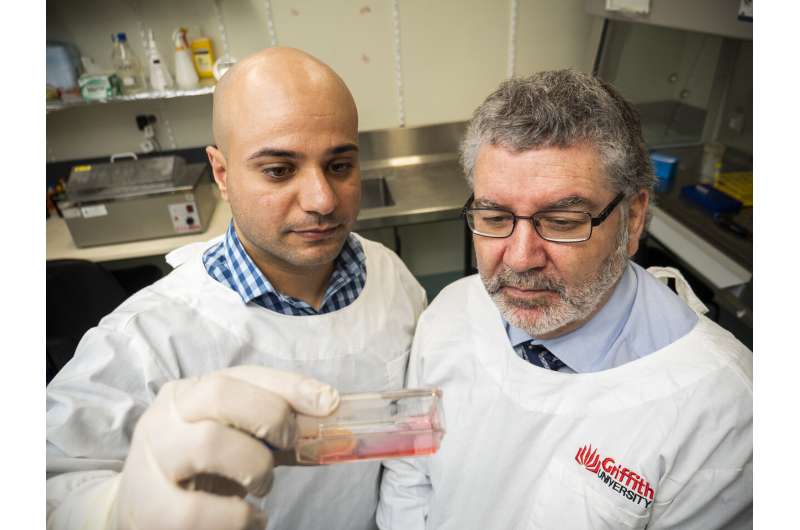Gene editing successfully used to treat cervical cancer in mice

The Griffith University scientists used CRISPR-Cas9 to successfully target and treat cervical cancer tumours in vivo (via injection into live and tumour-bearing mice) using "stealth" nanoparticles.
"This is the first cure for any cancer using this technology,'' said lead researcher Professor Nigel McMillan.
"The nanoparticles search out the cancer-causing gene in cancer cells and "edit it'' by introducing some extra DNA that causes the gene to be misread and stop being made.
"This is like adding a few extra letters into a word, so the spell checker doesn't recognise it "anyTTmore''. Because the cancer must have this gene to produce, once edited the cancer dies.
"In our study, the treated mice have 100% survival and no tumours. The mice showed no other clinical signs such as inflammation from treatment but there may be other gene changes we haven't measured yet.
"Other cancers can be treated once we know the right genes."
Nearly all cervical cancers are caused by a human papillomavirus infection (HPV), with more than 250 women in Australia dying from the disease each year (source: Cancer Australia).
"Persistent infection with high-risk HPV is responsible for 99.7% of cervical cancer cases,'' Professor McMillan said.
"After infection, the HPV integrates the E6 and E7 oncogene (genes with the potential to cause cancer), into the human genome, which drive and sustain cervical cancer."
The Griffith University scientists are working towards human trials of the gene therapy in the next five years.
The study is published in Molecular Therapy.
More information: Luqman Jubair et al. Systemic Delivery of CRISPR/Cas9 Targeting HPV Oncogenes Is Effective at Eliminating Established Tumors, Molecular Therapy (2019). DOI: 10.1016/j.ymthe.2019.08.012




















